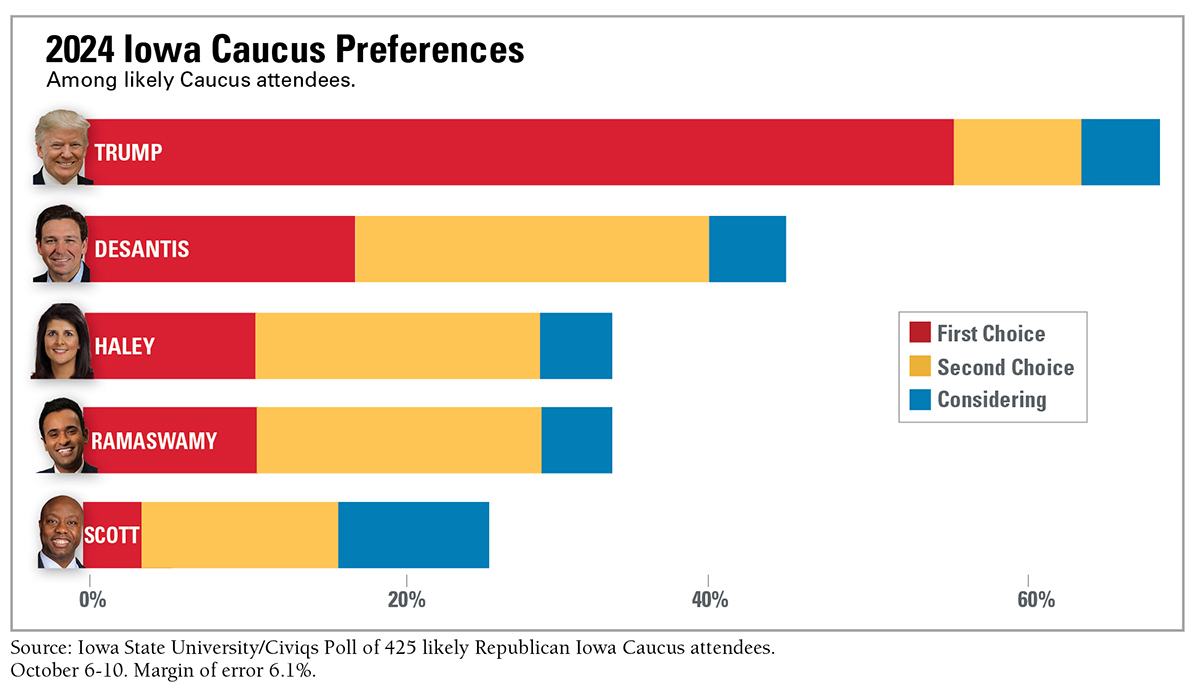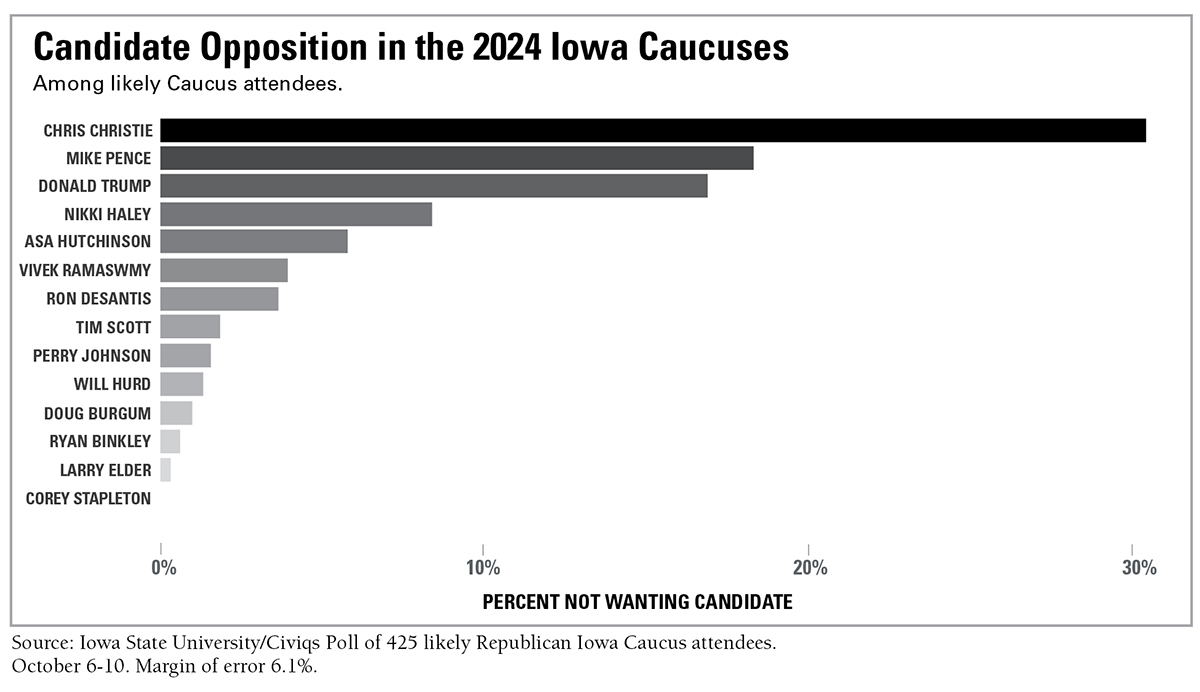
Graph created Oct. 12, 2023 by Dave Peterson, Political Science, and Deb Berger, Strategic Relations and Communications, at Iowa State University. Larger image.
AMES, Iowa – The second wave of results from the Iowa State University/Civiqs poll shows former President Donald Trump remains in the lead among GOP voters in Iowa.
Lucken Professor of Political Science Dave Peterson organized the poll, which surveyed 1,016 registered voters from Oct. 6-10. The results are the second in a five-part, monthly poll intended to track shifting perspectives before the Iowa caucuses on Jan. 15, 2024.
Among the participants, 425 said they “definitely” or “probably” will attend the Iowa Republican Caucuses and identified themselves as Republican or independent. Over half (58%) of these likely caucus-goers picked Trump as their top choice. This is a slight uptick – four percentage points – from the ISU/Civiqs poll results last month.
Florida Governor Ron DeSantis gained three percentage points but remains in second place with 17%, followed by former U.N. Ambassador and South Carolina Governor Nikki Haley at 11%. Entrepreneur and political commentator Vivek Ramaswamy fell from 9% to 5%.
“It still looks like there’s Trump and everyone else, but that everyone else is clarifying to be DeSantis and Haley, with Ramaswamy and U.S. Senator Tim Scott from South Carolina falling farther behind,” says Peterson.
Likely Republican caucus-goers were also asked which candidate is their second choice. DeSantis remained in the lead with 22% while Haley jumped to 18%, up seven percent from Sept. Ramaswamy dropped slightly to 16%, followed by Scott with 13%. Trump is in fifth place for the second-choice candidate with 8%.
Among likely Republican caucus goers in the poll, 62% said their mind is made up to support their first-choice candidate while 38% said they could be persuaded.
When asked if there were candidates that they did not support, almost a third of respondents said they did not want former New Jersey Governor Chris Christie to be the nominee. Former Vice President Mike Pence followed, with 18% saying they opposed him for the nomination. The only other candidate with more than 10% opposition was Trump, with 17% of the respondents saying they did not want him.
Peterson says the ISU/Civiqs poll stands out from others because some of the participants are interviewed for multiple polls.
“Four years ago, we did this with the Democratic Caucus, and each month, there was a lot of change. We could see voters who had been supporting candidate A shifting to candidate B. This time, there’s very little evidence of that,” says Peterson. “The people supporting Donald Trump last month are still supporting Donald Trump. There isn’t much movement between candidates. It looks like it’s fairly crystalized in who people are supporting.”
Results from the question about candidate opposition stayed mostly the same between the first and second polls, as well.

Graphic representing opposition to Republican presidential candidates among likely caucus-goers in Jan. 2024. Created Oct. 12, 2023 by Dave Peterson, Political Science, and Deb Berger, Strategic Relations and Communications at Iowa State University. Larger image.
The online survey was sent to selected members of the Civiqs research panel. An oversample of Republicans and independents were selected to produce a larger number of likely caucus attendees.
The survey results are weighted by age, race, gender, education, party identification, and congressional district to be representative of the population of registered voters and likely Republican Caucus attendees in Iowa. The survey has a margin of error of ±4.2% for registered voters and ±6.1% for likely Republican Caucus attendees, both at the 95% confidence level, accounting for the design effect.
Results of the next poll are expected in mid-November.
The Iowa State University/Civiqs poll is funded by Iowa State’s Department of Political Science, the Lucken Professorship in Political Science, and the College of Liberal Arts and Sciences.







